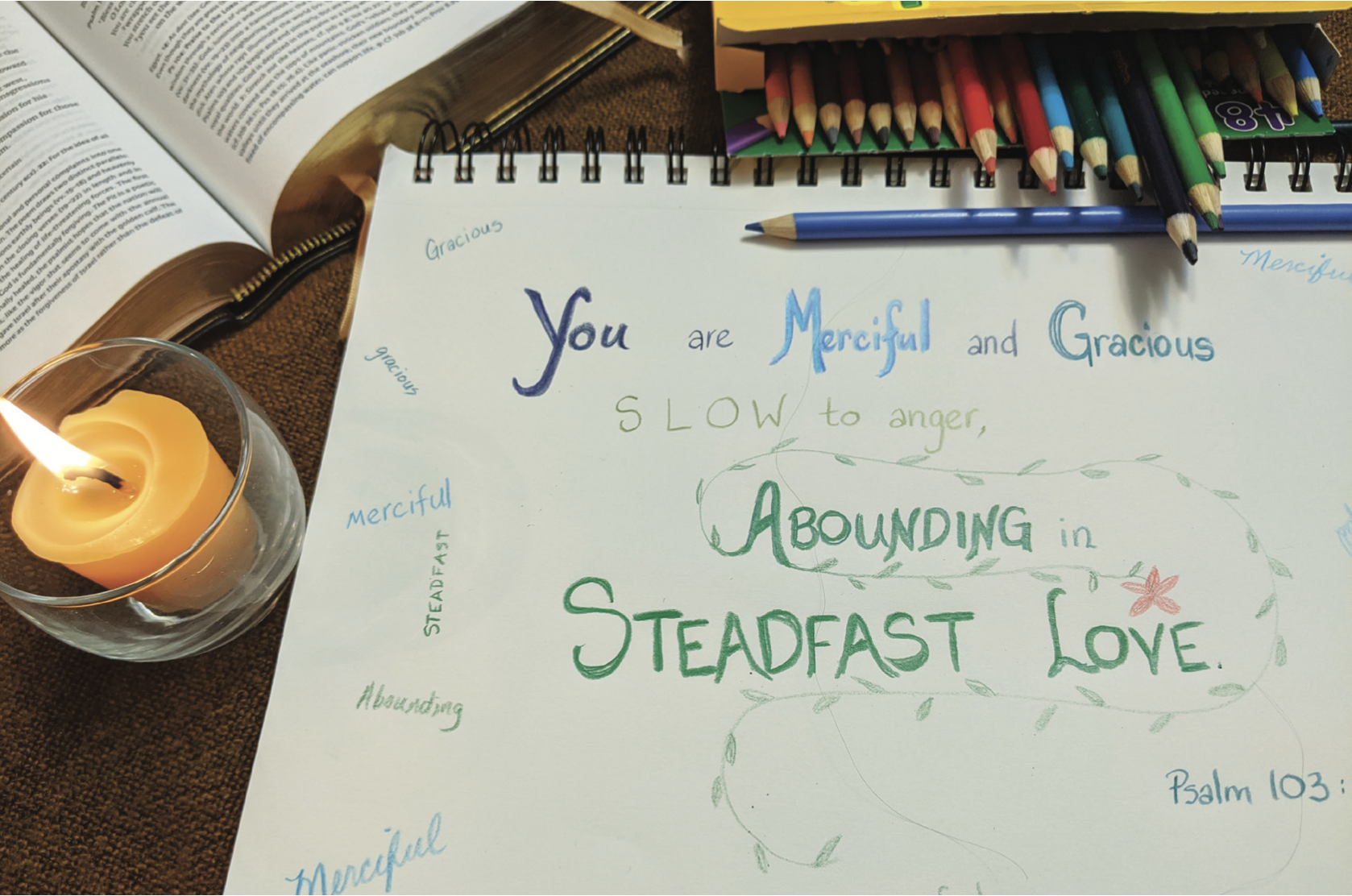As we continue through the season of Lent and approach Holy Week and Easter, we have entered our second year of not being able to worship in person. There is much to lament, of course, but also much to learn, about ourselves, our communities, who we are as disciples of Jesus, what it means to be Church. And many ways to use this peculiar time fruitfully. Remember the Navy saying: “Never waste a good crisis”.
Two things that are part of the invitation to “Observe a Holy Lent” (BAS p 282) are “Prayer” and “Reading and meditating on the word of God”. In this time of restriction on community gatherings, I invite you to find a verse of prayer, perhaps from the Psalms or a one sentence line of Scripture, to memorize it until it becomes part of your own prayer. The Hebrew word translated “meditate” means to “chew on”, ruminate like a cow chewing its cud, slowly, repetitively. When I find a line of scripture that leaps out at me, I write it out, in my best calligraphy, with my favourite colored pencil crayons, decorating it, to hang up on my bathroom mirror or above my desk, where I can see it. I used to pride myself on my good handwriting, but my hand is not as steady anymore. However, as with prayer and any artistic expression used as meditation, “it is the process, not the product” – my child’s art teacher kept repeating this to us parents who wanted to fix our 3 year olds’ methods! The process of prayer is not to be judged; “it is the process, not the product.” Catherine of Siena, the 14th century mystic and activist, said “Every time I evaluate my prayer, I ruin it!”
I suggest you make the prayer words of the Psalms into direct address to God, not the more remote third person, but second person address – “You….”
The process of writing out a verse of Scripture and decorating it helps me to memorize it, again not for perfect recital, but for “learning it by heart”, allowing it to shape us. Prayers are not to be wordy. They are best if simple.
I commend to you a wonderful book by Anne Lamott: Help. Thanks. Wow; the three essential prayers.
The Psalms give us many examples of language for each of these three kinds of prayers:
Help! Prayers seeking refuge and rescue, prayers of laent at how bad things are, prayers of trust.
Wow! A focus on the qualities of God, expressions of awe and praise.
Thanks! Prayers that keep us alert to all the blessings that surround us.
Here are a few potential phrases upon which to meditate from the lectionary Psalms in the next couple of weeks of Lent:
“Your steadfast love endures forever”
Psalm 107:1; Psalm 118:29
“The Heavens declare the Glory of God”
Psalm 19:1
“Be gracious to me, O God, for I am in distress”
Psalm 31:9
“My times are in your hand”
Psalm 31:15
“Do not be far from me,
for trouble is near
and there is no one to help”
Psalm 22:11
“This is the day that the Lord has made;
let us rejoice and be glad in it”
Psalm 118:24
Enjoy finding your own one-line psalm prayers to expand your prayer language!
May God bless you as we move through Lent and Holy Week, as we prepare our hearts for celebrating the joy of the Resurrection.
Yours in Christ,
+Lynne




